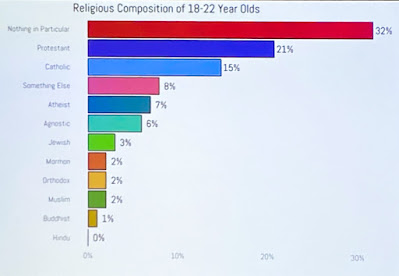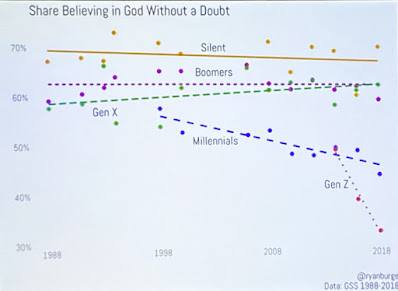The following is a sample sabbatical policy that can serve as a reference for churches working to implement a sabbatical policy for the overall health and flourishing of pastors and their families.
RATIONALE
Thom Rainer gives a helpful explanation as to why sabbaticals are important for pastors.
The word “sabbatical” has different meanings depending on the context in which it is used. It has one meaning in the academic community, another meaning in its biblical usage, and still another in many secular settings.
For the purpose of this article, I define sabbatical in simple terms. It simply means time off for rest and/or study. The time can be a few days, a few weeks or, on rare occasions, a few months. The pastor is given paid leave for rest, rejuvenation and, perhaps, deeper study. I would love to see churches of all sizes provide this requirement of their pastor, even if it’s only for a few days.
I have the opportunity to work with lay leaders and pastors. I have a pretty good view of both perspectives. And I am convinced that more lay leaders need to insist their pastors take regular breaks even beyond vacations. Allow me to provide five reasons for my rationale.
- A pastor has emotional highs and lows unlike most other vocations. In the course of a day, a pastor can deal with death, deep spiritual issues, great encouragement, petty criticisms, tragedies, illnesses, and celebrations of birth. The emotional roller coaster is draining. Your pastor needs a break—many times a break with no distractions.
- A pastor is on 24-hour call. Most pastors don’t have an “off” switch. They go to sleep with the knowledge they could be awakened by a phone call at anytime of the day. Vacations are rarely uninterrupted. It can be an exhausting vocation, and a sabbatical can be a welcome time to slow down.
- Pastors need time of uninterrupted study. It doesn’t usually happen in the study at church or home. There is always the crisis or need of the moment. Church members expect sermons that reflect much prayer and study. The pastor’s schedule often works against that ideal. The sabbatical can offer much needed, and uninterrupted, study time.
- Pastors who have sabbaticals have longer tenure at churches. Though my information is anecdotal, I do see the trend. And while I cannot prove a cause-and-effect relationship, I feel confident that pastors who have sabbaticals are much more likely to stay at a church because they are less likely to experience burnout.
- Pastors who have sabbaticals view the time off as an affirmation from their churches. I have heard from many pastors who share with me a sentence similar to this one: “I know my church loves me because they give me a sabbatical.” Pastors need affirmation. Sabbaticals can accomplish that goal.
I estimate that only about five percent of churches offer sabbaticals. In almost every case where I am familiar, the relationship between pastor and congregation is very healthy. I do think at least one of the reasons is the sabbatical.
PROCEDURE
The pastor requesting a sabbatical should complete a written request to be submitted to the elder board for discussion and approval at least six months prior to the intended start date of the sabbatical.
- The written request should include the goal(s), plan, and time period for the sabbatical. Generally speaking, sabbaticals should last around six weeks. Exceptions to this (shorter or longer) can be considered with written explanation in the request document.
- The pastor taking sabbatical will work with the elder board in identifying responsibilities that will need to be filled by other leaders in the church for the period of the sabbatical.
- The pastor taking sabbatical will agree with the board of elders on a peer who will provide accountability. They will also agree on the frequency of the peer accountability meetings. (See Bob Thune’s comments on “spiritual director” below.)
- The elder board shall announce and explain the sabbatical to the church including the reason(s), goal(s) and guidelines for the sabbatical. It should also be communicated to the church the time period for the sabbatical and the temporary change in the pastor’s role(s) in the church.
- Upon re-entry, the pastor returning from sabbatical shall address the church and summarize the results of their time of rest including: goals accomplished, value of the time away from regular duties and any personal or professional development.
- The sabbatical will not take away from the pastor’s normal pay or vacation time during the year.
- Pastors are eligible for sabbatical after every five years of service at The Vine.
PLAN
We would recommend the following “best practices” from Pastor Bob Thune.
Stay in one place. A sabbatical is not a vacation. The goal isn’t to pack as much “fun” as possible into the allotted time. Rather, the goal of a sabbatical is whole-person rest. And for you to really rest deeply, you need to be in one place for as long as possible. Every time you have to travel or prepare for a new experience, your mind, body, and soul go back into action and activity. Only the settled, serene passivity of being somewhere can facilitate the kind of rest you need.
Set simple rhythms. The simpler your life rhythms, the deeper your rest and renewal. For instance, we set a 7-day meal schedule for the entire six weeks, so we didn’t have to plan for what we were going to eat (every week was the same). In addition, we set rhythms our kids could look forward to: Wednesday was “field trip day.” Saturday morning was “walk to Dunkin Donuts” morning. Sunday night was pizza at the pizza parlor, where we became “regulars” with Nick the bartender and Megan the waitress. If setting predictable rhythms sounds too boring and routine… might I submit that you may be so frenzied with activity that you’ve never experienced Sabbath?
Get a spiritual director. I stole this from Eugene Peterson’s fantastic little book “Working the Angles.” He said every pastor should have a spiritual director. I took his advice. And I’m a better man for it. A spiritual director is someone who directs you spiritually – not in an authoritarian way, but in a “coming alongside” way. He or she helps you pay attention to what God is doing in your soul. A wise director listens well, asks good questions, and looks for traces of God’s work that you might be missing. My spiritual director on sabbatical was my friend Gardner, who graciously gave two unhurried hours every week to serve as my pastor/adviser/counselor/friend. Make it a high priority in your sabbatical planning to find a spiritual director – ideally one who can sit with you face-to-face. If you still need convincing, read Peterson’s book and then consider the number of pastors you know who are long on ministry skill and short on heart renewal. Ask yourself if you want to be one of them.
Go to church (but not yours). I can’t tell you how refreshing it is to just GO to church. With no expectations: no one asking you who’s preaching today, no one seeking out your wife for on-the-spot counseling, no one running to you about the crisis in the nursery. Give yourself and your family this gift – you’ll be grateful. We attended a church of about 100 people that met in an elementary school within walking distance from our house. It was entirely different from Coram Deo – refreshingly. It wasn’t the way I would have led things. But it didn’t matter. It was the people of God gathering to worship God and live on mission in their city, and that was enough. The Lord humbled me, taught me, encouraged me, and graced me through that local church in ways I never could have experienced in my own context.



